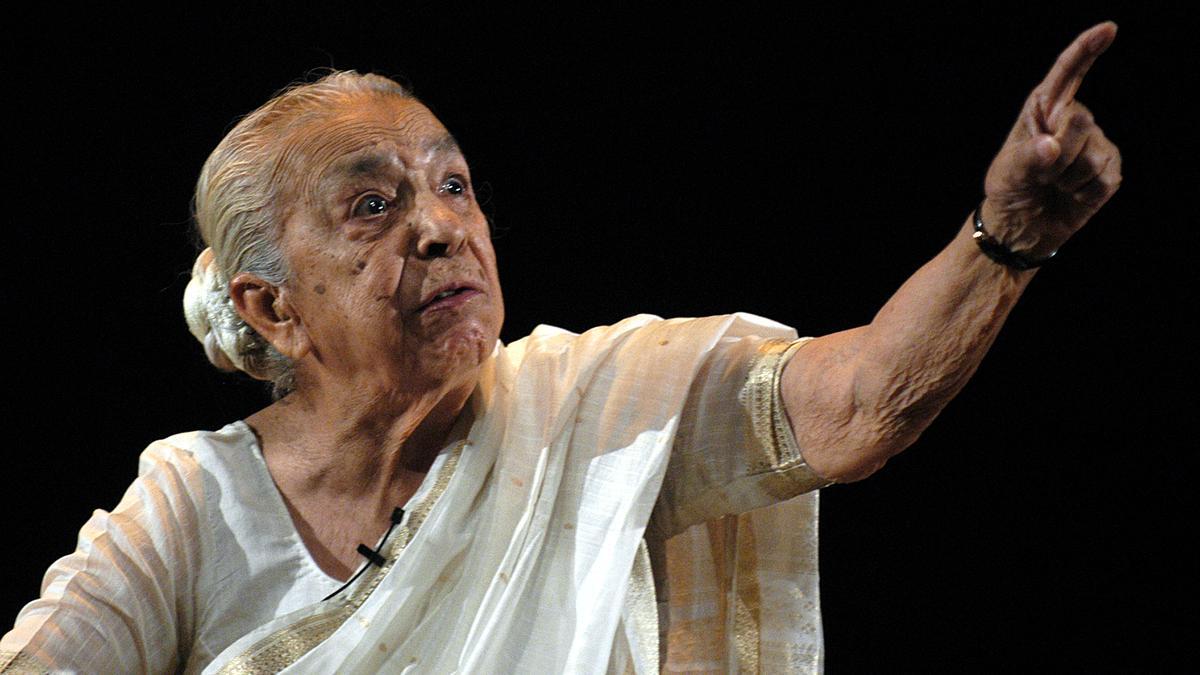
Zohra Segal (1912-2014) was a multifaceted personality who lived life unapologetically on her own terms. Born as Sahibzadi Zohra Begum Mumtaz-ullah Khan in an aristocratic Muslim family in Saharanpur, she shattered societal norms at a time when such defiance was practically unheard of, especially for women. Known for her bold choices and remarkable talent, she left an indelible mark on the world of performing arts.
In her memory, Zohra’s daughter, Odissi dancer Kiran Segal, has been organizing an annual tribute event dedicated to celebrating the arts. “I launched the festival in 2016, guided by the thought that art was what truly defined her. Hence, the remembrance event is dedicated to her passion for acting and dance,” shares Kiran. Supported by the Zohra Segal Trust, the India International Centre, and the Raza Foundation, this weekend sees the return of the Zohra Segal Festival of the Arts at the IIC in Delhi.
This year’s events, as in previous editions, feature an eclectic lineup. The festival kicks off with Fado, a Portuguese-inspired genre of music embraced by Goans. Fado, which blends music and poetry, was added to UNESCO’s Intangible Cultural Heritage Lists in 2011. Translating to ‘fate’ or ‘destiny’ in Portuguese, Fado has a distinct melancholic undertone. Interestingly, Fado singers were traditionally never invited to perform. At this year’s festival, musicians Shrushti and Swaraa Prabhudessai will impress audiences, accompanied by guitarists Franz Schubert Cotta and Sherwyn Correia.
“This festival allows us to showcase varied art forms that capture the imagination and enrich the soul, much like Zohra did through her work,” Kiran reflects while reminiscing about her mother’s unparalleled contributions.
On the second day, the spotlight shifts to Lavani, the vibrant Maharashtrian folk dance. This presentation, a journey through Lavani’s evolution from the 1800s, will be narrated in the traditional storytelling format by Kali Billi Productions and Savitri Medhatul, featuring three talented dancers. Given that Zohra Segal had earlier spent significant years in Mumbai as the dance director at Prithvi Theatre, the focus on a Maharashtrian dance form is fitting.
. This connection harks back to the days when Zohra and her husband Kameshwar had moved to Bombay from Lahore due to unrest in the 1940s. Zohra, bringing with her extensive training in dance, notably from her days under Mary Wigman in Germany and her association with Uday Shankar’s group in Almora, found work at Prithvi Theatre, where she excelled.
In prior editions, the Zohra Segal Festival of the Arts has been celebrated for its diverse representation of theatre in various languages, qawwali, dastangoi, and multiple dance forms. Notably, a performance by Bengali ‘dhak’ artistes in one of the previous years garnered much acclaim.
Kiran humorously notes, “The festival’s eclectic curation reflects my mother’s versatility and her knack for highlighting lesser-known art forms.” Zohra’s innate ability to attract and revel in the limelight is something her daughter fondly remembers.
Poetry was another domain where Zohra Segal shone brilliantly. Her recitations were always a significant highlight, lingering in the memories of those who witnessed them. Surprisingly, many are unaware that Zohra spent over two decades in London, where she became a prominent figure in British television and films. Upon her return to Delhi in 1987, where she lived with Kiran, Zohra redirected her focus towards Hindi films, continuing to act until her passing in 2014.
Kiran passionately recounts, “My mother considered herself a citizen of the world. Her education at Queen Mary in Lahore, subsequent dance studies under Mary Wigman in Germany, brief residence in Almora, and association with Uday Shankar’s group all shaped her remarkable journey. Even after her marriage in Lahore, her artistry led her to Mumbai where she left an enduring legacy.”
The Zohra Segal Festival of the Arts remains open to all, relying entirely on the generosity of well-wishers and donations. This spirit of accessibility and inclusiveness underscores Zohra Segal’s lifelong commitment to making art an integral part of everyday life, accessible to everyone.
As we look forward to this weekend’s events, it is clear that the Zohra Segal Festival of the Arts is more than just a festival; it is a heartfelt homage to a woman who defied conventions and lived her truth through art, thereby inspiring generations to come.
Published – September 26, 2024 12:31 pm IST
Friday Review












